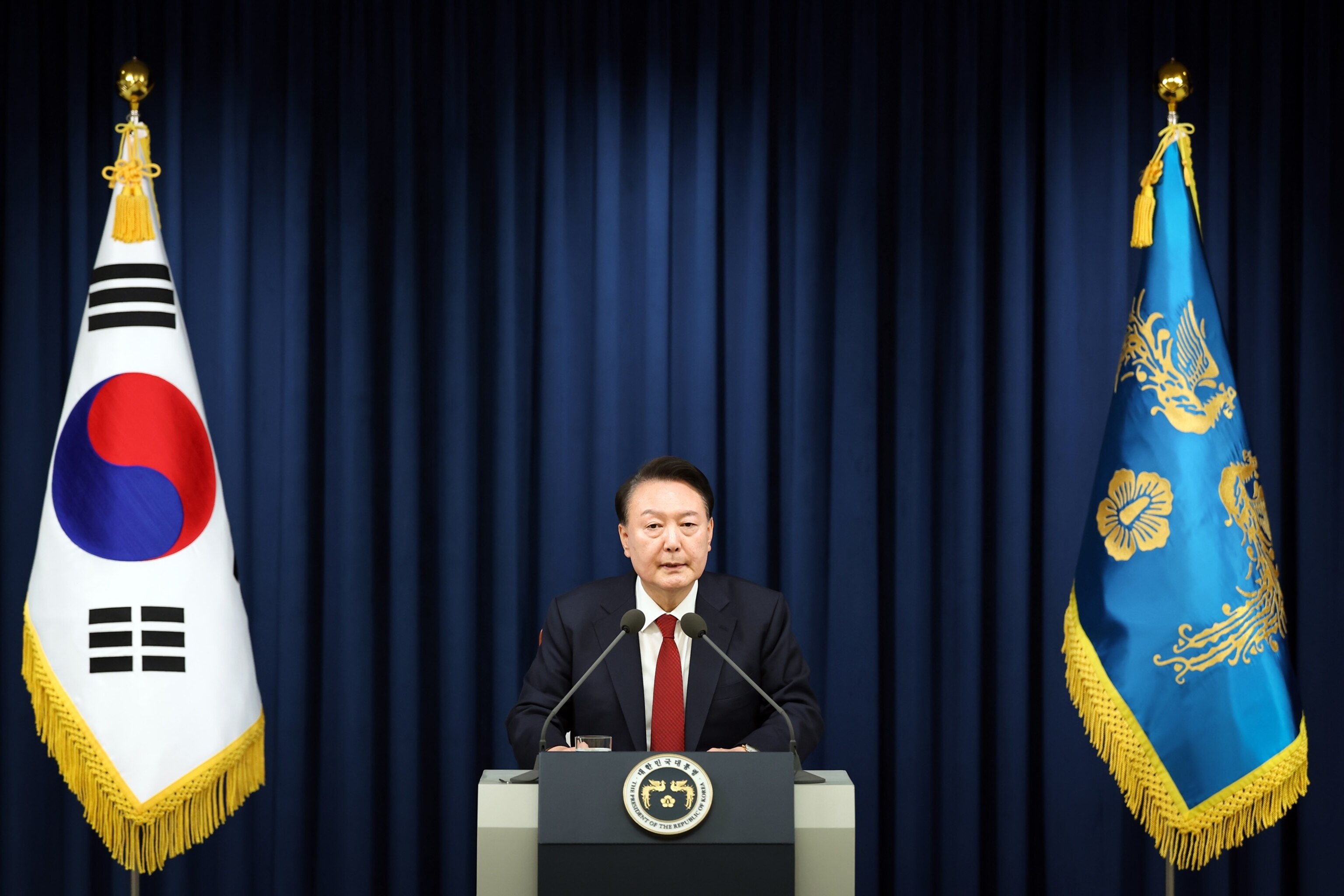South Korean opposition moves to impeach president after his declaration of martial law
President Yoon Suk Yeol of South Korea declared martial law late Tuesday.
SEOUL and LONDON -- South Korea's dominant opposition party moved on Wednesday to impeach President Yoon Suk Yeol, submitting a motion a day after his declaration of martial law set off a night of political chaos.
The opposition Democratic Party's motion to impeach Yoon is expected to make its way through the National Assembly in the coming days, with a vote likely either Friday or Saturday. The measure would require a two-thirds majority to pass. It would then be sent to South Korea's Constitutional Court, which would have to approve the motion.
The ruling conservative party decided not to participate in the motion to impeach Yoon on Wednesday.
Lawmakers and members of South Korea's main opposition party had earlier on Wednesday gathered in Seoul to call for Yoon's resignation.

"If President Yoon does not step down immediately, we will immediately begin impeachment proceedings in accordance with the will of the people," the Democratic Party had said in a statement. "We will fight to the end together with all the people to protect the democracy and constitutional order of the Republic of Korea."
As he declared martial law in a televised speech late Tuesday, the president said the measure would be necessary due to the actions of the Democratic Party, a liberal coalition that Yoon accused of controlling parliament, sympathizing with North Korea and paralyzing the government.

The declaration included banning political activities, including rallies and protests. Yoon also called for a stop to the "dissemination of fake news" and the manipulation of public opinion. All press would have been controlled by the state under the declaration.
The move sparked protests and -- just hours after the declaration -- the National Assembly voted early Wednesday morning to demand that the president lift the martial law order. A majority of parliament voted to lift the decree requiring that it then be lifted, under the South Korean constitution.

Following the National Assembly's vote, Yoon said he withdrew the troops that had been deployed to carry out martial law and "will lift martial law as soon as we have a quorum in the cabinet." The State Council then convened to vote to officially lift it.
Presidential Chief of Staff Jeong Jin-seok and nine other senior presidential secretaries announced their resignations, the South Korean presidential office told reporters Wednesday morning.

A member of the conservative People Power Party, Yoon began his five-year term in May 2022 after wining office by a razor-thin margin.
A political newcomer before his election, Yoon had spent his entire career as a prosecutor, rising to prominence by prosecuting big political players, including President Park Geun Hye, who was impeached and removed from office in 2017.
Yoon was meeting on Wednesday afternoon with South Korea's top political leaders in his office, Yonhap News Agency reported.
The Democratic Party organized a candlelight vigil in support of Yoon's impeachment on the steps of the National Assembly on Wednesday night.
ABC News' Ellie Kaufman, Joe Simonetti, Dave Brennan and Meredith Deliso contributed to this report.





